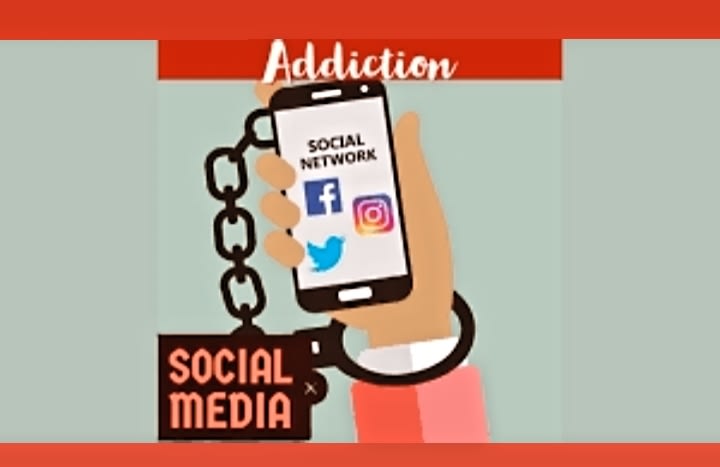Applications and online stages are addictive by plan, not coincidentally.
The social media is built to steal our focuses

The way that these applications and other internet based stages suck such a large amount your time isn't a plan imperfection. They should be habit-forming. All things considered, there's an explanation Silicon Valley refers to its clients as "clients."
What's more, where did this plan start? That is simple: the Influential Advancements Lab at Stanford College. In the mid 2000s, the lab found out if the speculations of persuasive conduct analysts could be integrated into PC code - at the end of the day, it found out if tech can change human way of behaving. Furthermore, the response, as you could have speculated, was yes.

Here is a model. One of the clinicians concentrated on in the lab was B. F. Skinner. Skinner was well known for the analyses he led on rodents. He'd give a rodent a negligible undertaking, such as pressing a button. Be that as it may, the rodent showed no interest in doing this - how could it?
So Skinner adjusted the errand. Presently, every time the rodent squeezed the button, it would be compensated with a pellet of food. Prizes would inspire creatures, Skinner found, to complete assignments that had no inherent importance to them.
Can't connect with the rodent and the button? Indeed, Skinner enlivened the making of different buttons you could perceive: like buttons, share fastens, and remark buttons. Those little hearts and emoticons and retweet buttons aren't configuration idiosyncrasies; they're customizing us to involve virtual entertainment in habit-forming ways by remunerating us for the time we spend on the stages.

These buttons keep us connecting longer. However, they're only one of the many plan components equipped at keeping us on the web. Here is another: the endless parchment. Back in the beginning of the web, website pages were only that: pages. Destinations frequently contained different pages; when you made quick work of one, you navigated to the following. The lower part of each page offered an implicit respite. If you had any desire to continue to peruse, you needed to effectively choose to click ahead.
That is, until Aza Raskin stepped in. Raskin imagined the limitless parchment - the unendingly invigorating feed of content that presently includes on the connection point of practically every web-based entertainment stage, giving the feeling that there is a ceaseless inventory of content. Assuming preferences and offers urge clients to remain online longer, the limitless parchment urges clients to remain online in ceaselessness.

Raskin, be that as it may, has come to lament his creation. From the outset, he thought the endless parchment was exquisite and productive. In any case, he became pained when he saw the way things were improving on web-based propensities - including his own. Seeing that he was spending increasingly long via virtual entertainment, Raskin began to figure it out. He appraises that the boundless parchment initiates the typical client to invest 50% more energy on stages like Facebook and Twitter.

The plan of action of the vast majority of these stages is predicated on time - or, as they call it, commitment. This alludes to how long a client spends communicating with an item. That is the metric tech organizations use to gauge their prosperity - not cash, but rather minutes. Be that as it may, cash has an influence, as well. Since the more you spend "connecting with," the more possibilities the organizations need to sell promotions. The more you draw in, the more organizations track your way of behaving and fabricate a profile particularly intended to target you with explicit promotions. We don't pay for stages like Facebook and Instagram with our cash. In any case, we in all actuality do pay with another valuable, limited product: our consideration.
In Silicon Valley, time approaches cash. The cash is theirs. Also, the time - the consideration - is yours.






Comments
There are no comments for this story
Be the first to respond and start the conversation.